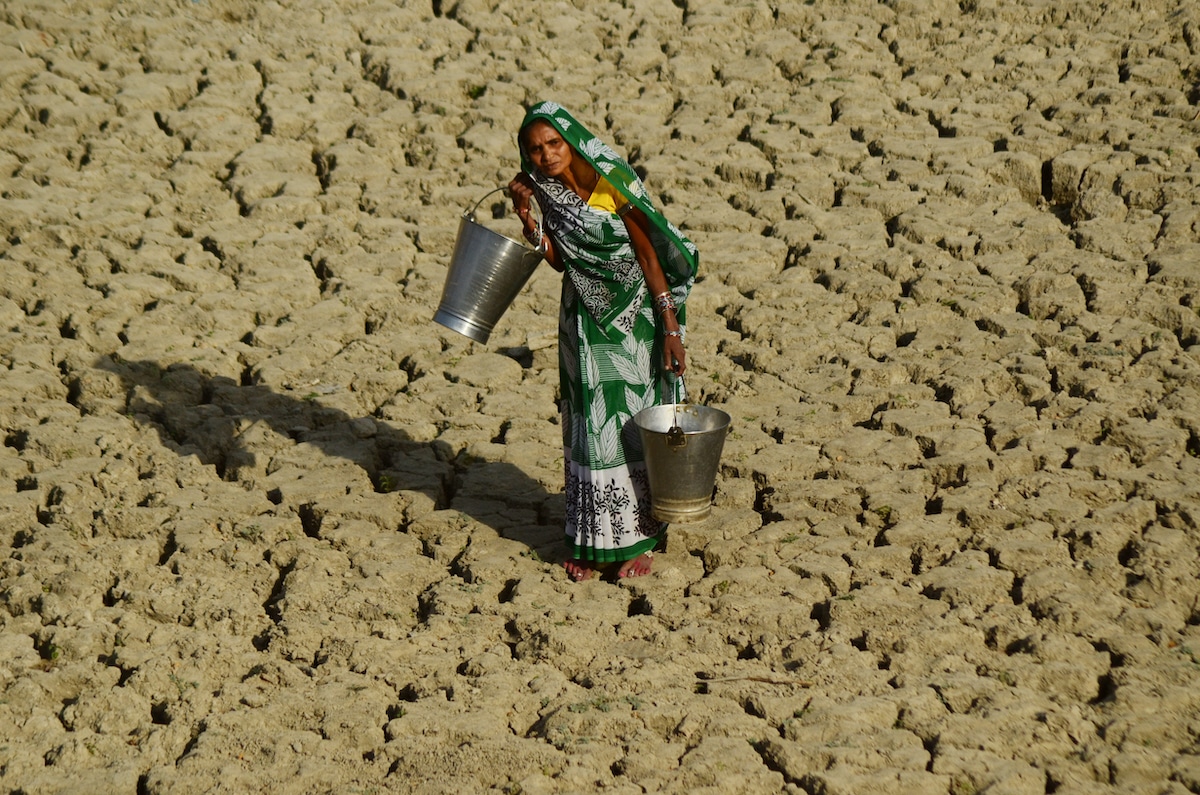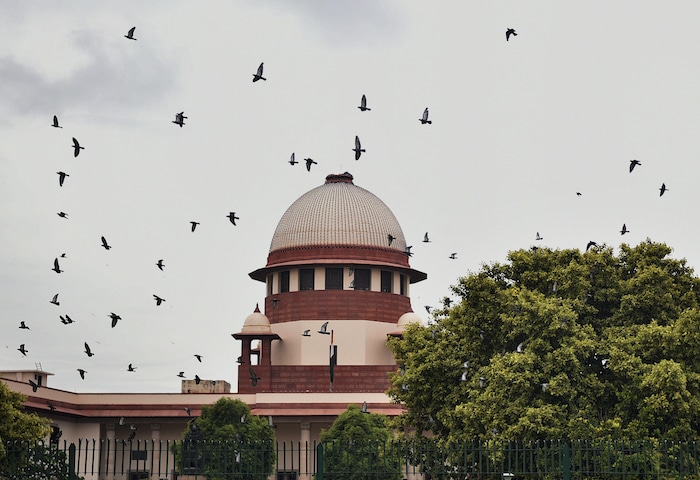Ecowatch
India’s Supreme Court Expands ‘Right to Life’ to Include Protection Against Climate Change

A woman walks on a dried, cracked water pond as she carries buckets for drinking water in Kaushambi, India on April 25, 2016 during a drought affecting 330 million people in the country, according to government figures. Ritesh Shukla / NurPhoto via Getty Images

Why you can trust us
Founded in 2005 as an Ohio-based environmental newspaper, EcoWatch is a digital platform dedicated to publishing quality, science-based content on environmental issues, causes, and solutions.
In another landmark climate decision, the Supreme Court of India has ruled that an individual’s “right to life” includes protection against the impacts of climate change.
The verdict reflects fundamental rights stated in Article 21 of the country’s constitution, reported The Independent.
“Without a clean environment which is stable and unimpacted by the vagaries of climate change, the right to life is not fully realised,” the decision of the court said. “The right to health (which is a part of the right to life under Article 21) is impacted due to factors such as air pollution, shifts in vector-borne diseases, rising temperatures, droughts, shortages in food supplies due to crop failure, storms, and flooding.”
The statement was given by the court during a hearing on March 21 regarding the protection of two critically endangered bird species.
In its finding, India’s Supreme Court expanded the reach of Articles 21 and 14 to include the “right against the adverse effects of climate change,” The Indian Express reported.
“The importance of the environment, as indicated by these provisions, becomes a right in other parts of the Constitution. Article 21 recognises the right to life and personal liberty while Article 14 indicates that all persons shall have equality before law and the equal protection of laws. These Articles are important sources of the right to a clean environment and the right against the adverse effects of climate change,” the court said.


The court requested that a committee be established to find a balance between the development of clean energy infrastructure in Gujarat and Rajasthan states and conservation of the Great Indian Bustard, reported The Independent.
Due to its enormous population; dependency on agriculture; and exposure to drought, flooding and other extreme weather events, India has been recognized as one of the most vulnerable countries to the impacts of climate change by a number of think tanks.
“Despite governmental policy and rules and regulations recognising the adverse effects of climate change and seeking to combat it, there is no single or umbrella legislation in India which relates to climate change and the attendant concerns,” the court added, as The Indian Express reported. “However, this does not mean that the people of India do not have a right against the adverse effects of climate change.”
The court said that the rights to life and equality had been violated by the “inability of underserved communities to adapt to climate change or cope with its effects.”
In 2015, the rights of humans with reference to the climate crisis were recognized in the preamble to the Paris Agreement, reported Down to Earth.
“Acknowledging that climate change is a common concern of humankind, Parties should, when taking action to address climate change, respect, promote and consider their respective obligations on human rights, the right to health, the rights of indigenous peoples, local communities, migrants, children, persons with disabilities and people in vulnerable situations and the right to development, as well as gender equality, empowerment of women and intergenerational equity,” it said.
The Indian court’s decision was made public days before the European Court of Human Rights ruled that Switzerland had violated the human rights of its citizens by failing to adequately reduce the impacts of the climate crisis.
Subscribe to get exclusive updates in our daily newsletter!
By signing up, you agree to the Terms of Use and Privacy Policy & to receive electronic communications from EcoWatch Media Group, which may include marketing promotions, advertisements and sponsored content.
Source
Disclaimer: No copyright infringement intended. All rights and credits reserved to respective owner(s).












